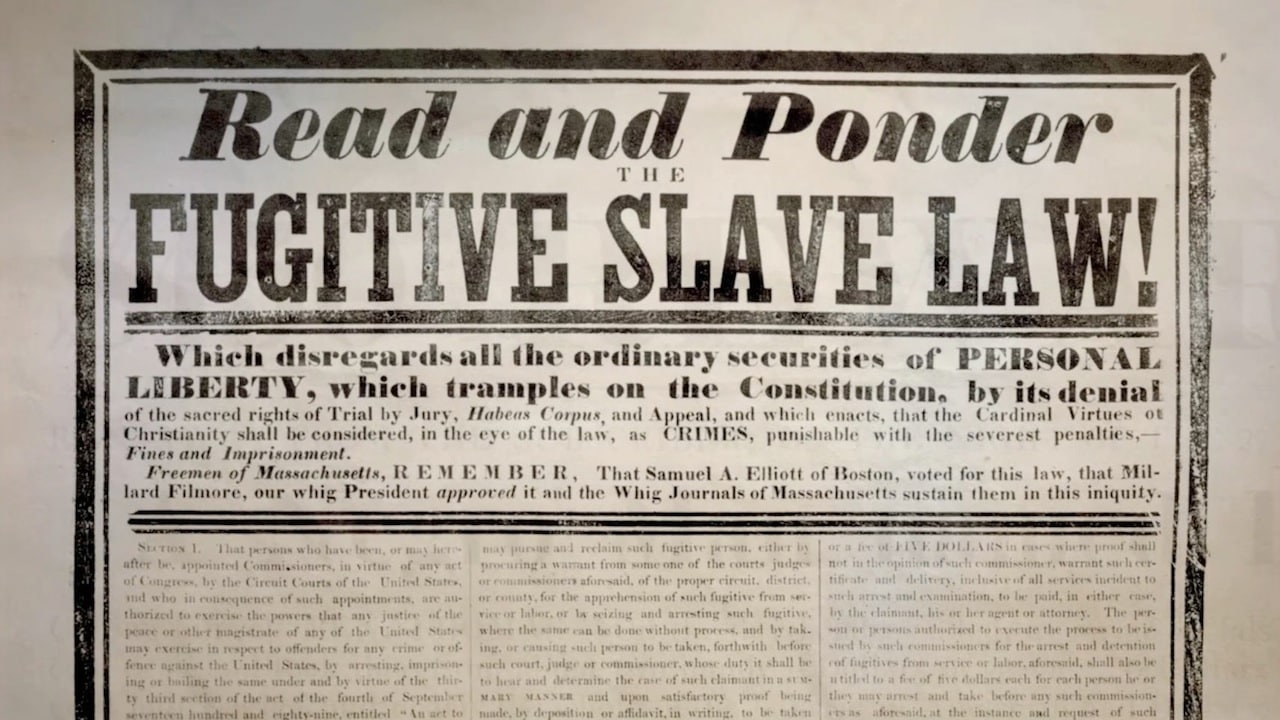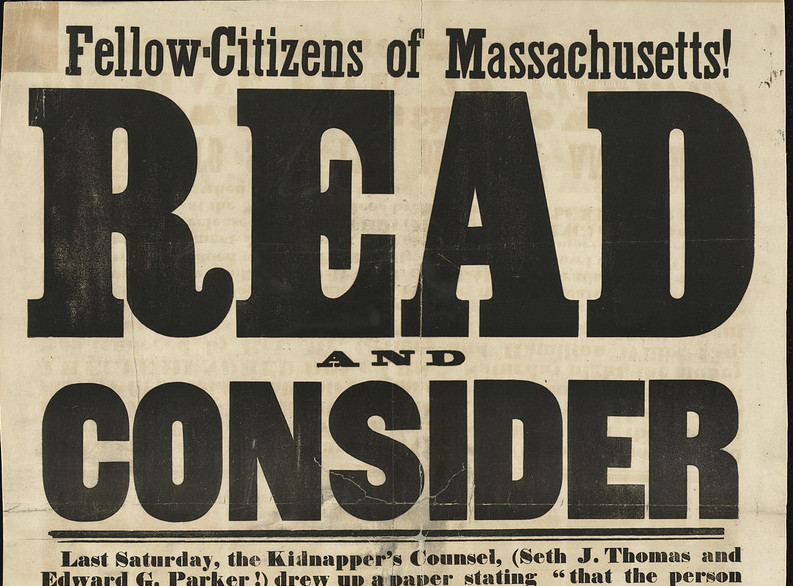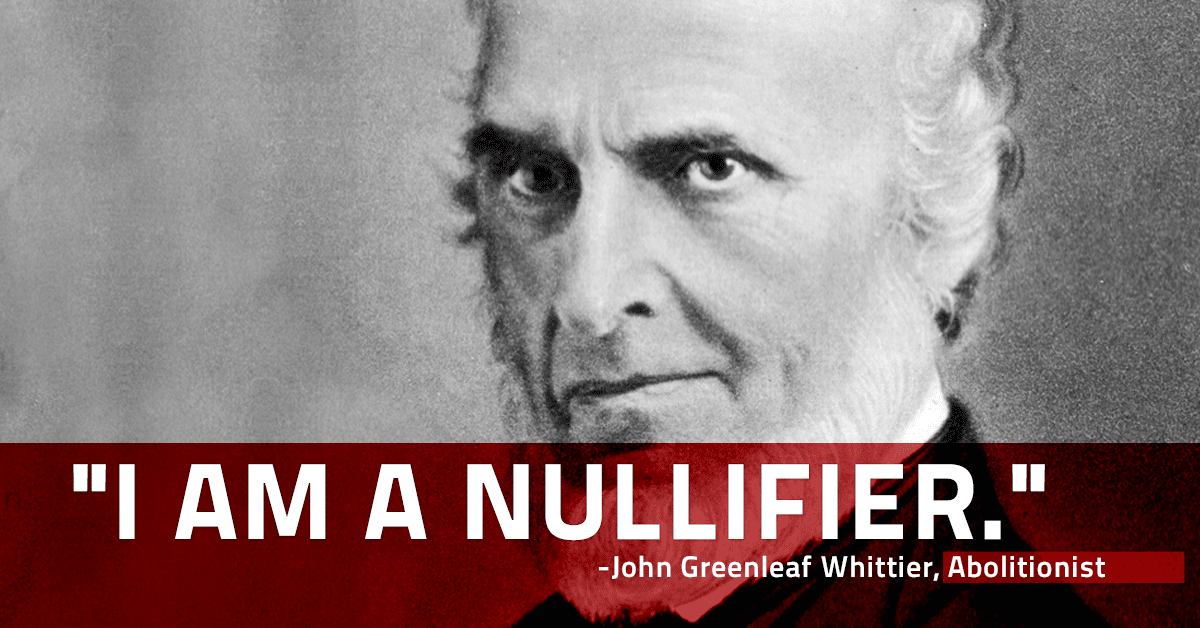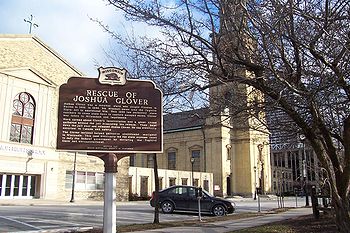


A History of Rendition Resistance by States: From Fugitive Slaves to Immigration
Throughout a period spanning over two decades in the 19th century, northern states rejected and refused to honor rendition requests under the Fugitive Slave Acts of 1793 and 1850. Today, we see a similar dynamic at play when states and localities decline to hold...
When Nullifiers Were Abolitionists: Vermont vs the Fugitive Slave Act
Critics of nullification are fond of bringing up the Nullification Crisis of 1832 involving John C. Calhoun’s misguided and warped interpretation of what the doctrine meant as advocated by James Madison and Thomas Jefferson. Many, however, are unfamiliar with another...
Abolitionists for Nullification: Four Important Historical Facts
Opponents of nullification often try to associate it with the slaveholding states of the 19th century South by claiming the issue was “settled by the civil war.” The implication is that the South wanted to nullify, and since they lost the war,...
